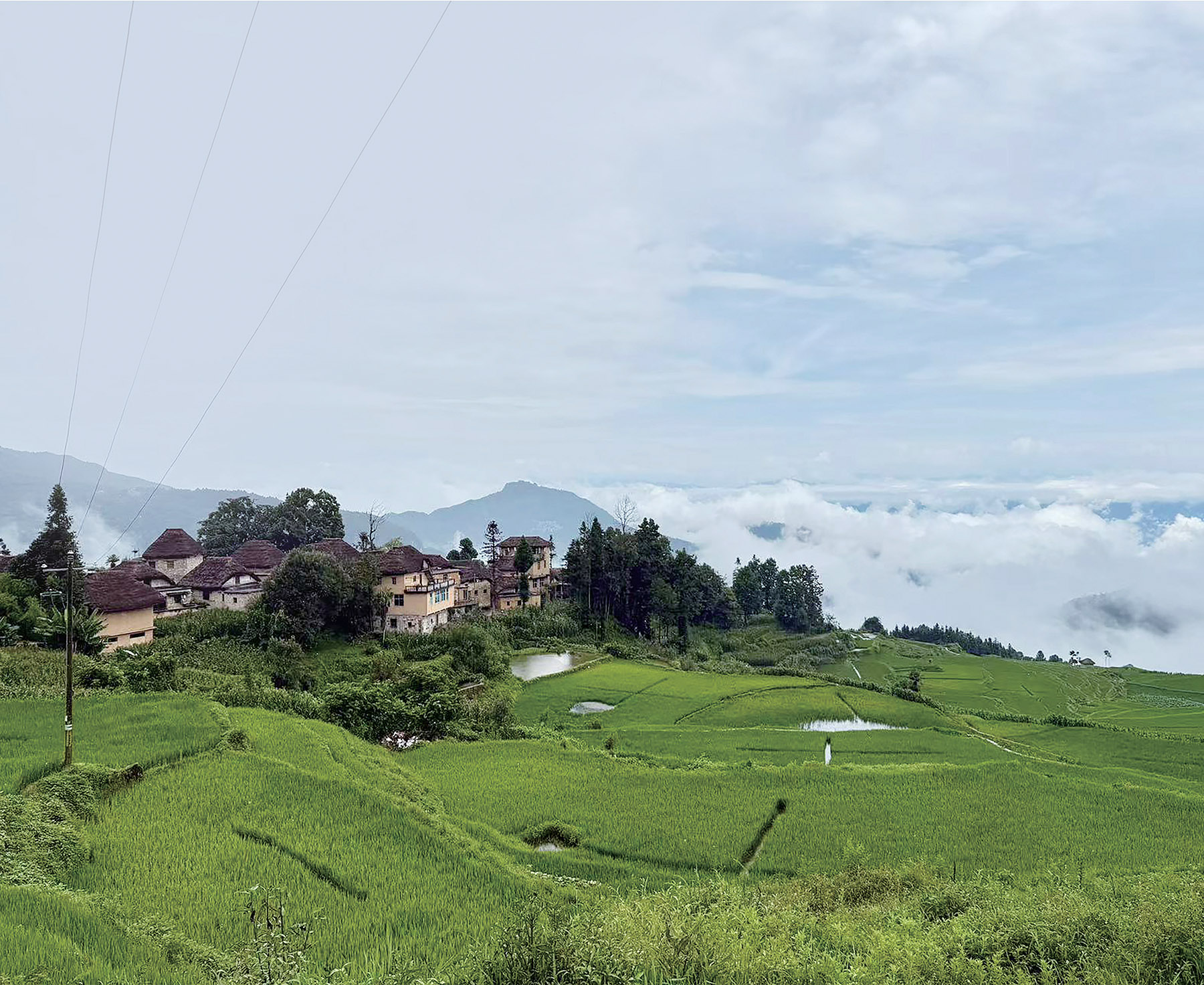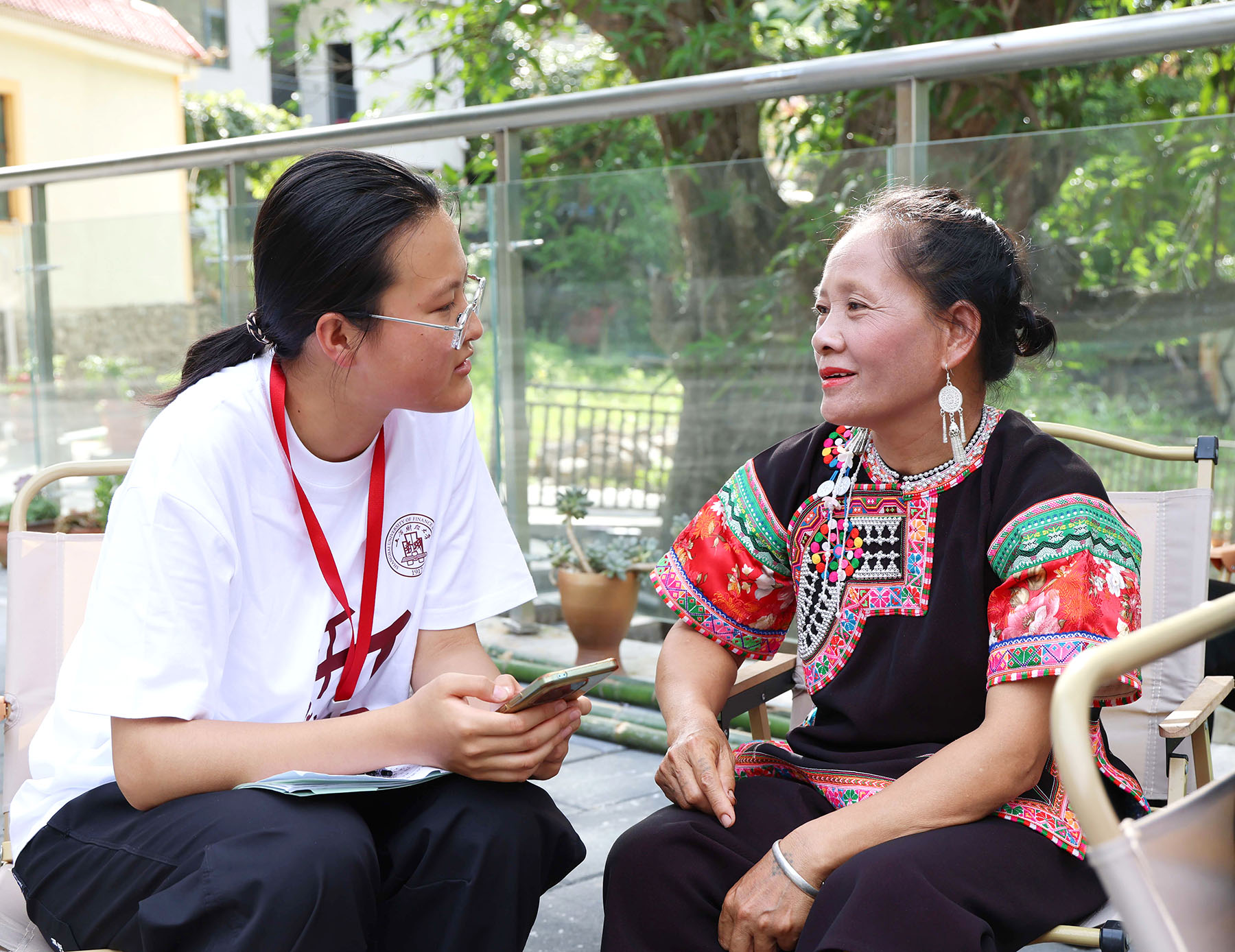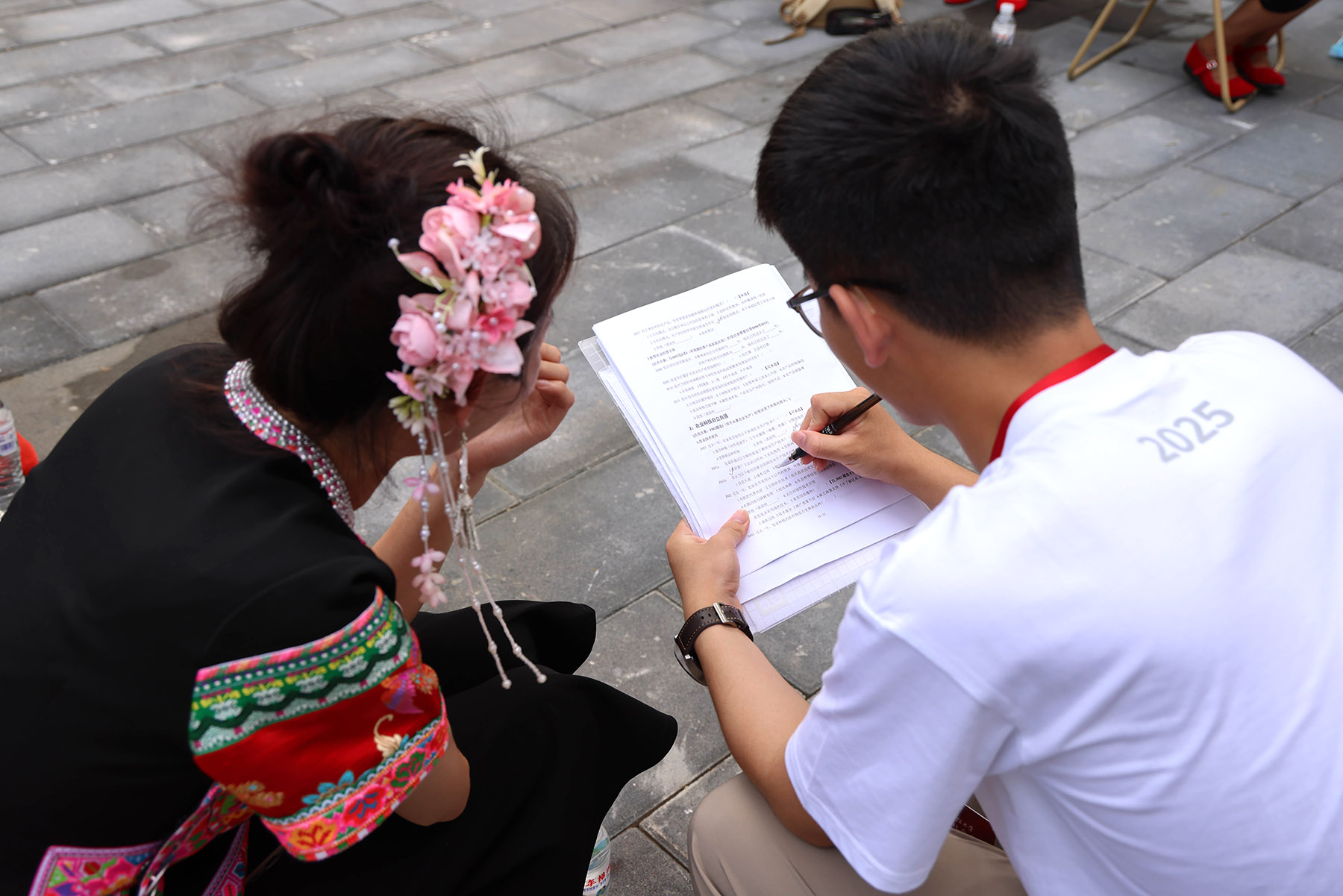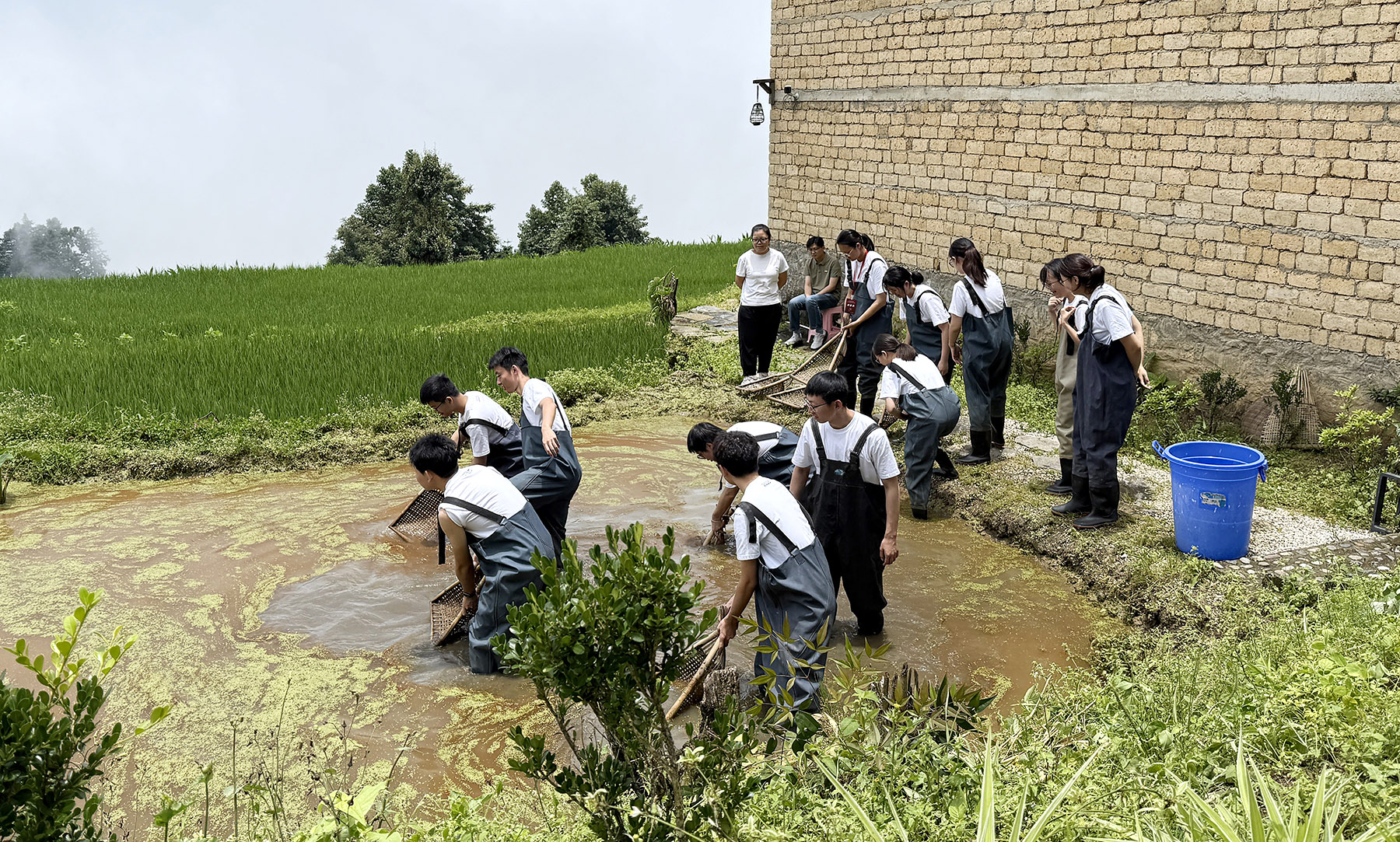College students swap city life for countryside fieldwork, testing how short videos and digital tools can boost village economies.

In the mountains of Yuanyang county in Southwest China's Yunnan province, renowned for its UNESCO-listed rice terraces, 18-year-old Wang Yilin is discovering rural realities that challenge her expectations.
A native of Yunnan and now an e-commerce major at Shanghai University of Finance and Economics (SUFE), Wang came to the area hoping to apply digital tools to modernize agricultural sales.
"Reality turned out to be more complicated than I expected," Wang said. "While urban China thrives on smartphones and online shopping, many villages here are mostly inhabited by elderly residents who are unfamiliar with digital technology."
Though she grew up in the city, Wang feels a deep connection to the rural areas of her home province.
"My family comes from a farming background," she said. "I've always believed that applying my professional knowledge to help local communities would be meaningful."
READ MORE: Sowing trust, reaping change
Despite the challenges, Wang sees great potential in agricultural e-commerce — particularly through short video platforms that allow farmers to directly showcase their products to buyers.
"These platforms create new sales channels and help farmers better understand the market, which can reduce waste after harvest," she explained. "The key is to ensure the platforms are user-friendly and supported by sustainable operations."
Wang is one of over 1,800 SUFE students and faculty members participating in the university's "Thousand-Village Survey" program this year.

Now in its 18th year, the initiative has sent over 30,000 students to more than 14,500 villages across 34 provincial-level regions, generating approximately 13,000 research reports on agriculture, rural development, and farmers' livelihoods.
The 2025 survey focuses on enhancing China's agricultural strength. According to Zhang Jinhua, the program's chief expert and associate dean of SUFE's Institute of Urban-Rural Development, 733 groups have been dispatched nationwide.
Yuanyang's rice terraces, which are over 1,300 years old, represent a unique case study where tradition meets modernity.
These ancient terraces form an integrated agro-ecosystem combining forests, villages, and water systems. The multi-layered farming structure — using altitudinal gradients — supports crops like red rice that balance ecological preservation with economic benefits, while agro-tourism drives rural revitalization.
"Despite Yuanyang's agricultural progress in recent years, we see room for improvement in processing capabilities, industry profitability, planning services, and organizational structure," Zhang said.
"Our findings will provide recommendations to local authorities to support further agricultural development."
Shi Shuaiwei, a doctoral candidate in agricultural economics, emphasized the value of field research. While theoretical knowledge can be overly simplistic, real-world investigations reveal the complex, multifaceted challenges farmers actually face.
"We conduct in-depth interviews with farmers and use questionnaires to understand their current situation and the difficulties they encounter," Shi explained. "This large-sample approach helps us identify systemic issues and develop practical solutions."

Shi pointed out that many local agricultural products have strong market potential, with red rice commanding premium prices and loquat cultivation generating substantial income.
Still, challenges remain.
"Many farmers are seeing shrinking profits, especially in mango cultivation, where declining prices have led to reduced investment in crop management," he said. "Studying successful models, building brand identity, and developing value-added processing could help boost their income."
For sociology freshman Chang Renqian, the fieldwork was an eye-opening experience.
"It helped shape the direction of my future academic pursuits," he said.
Chang believes social media influencers could help attract more young people back to agriculture, especially as rural areas face population decline.
"While many people recognize the importance of agriculture, they're often discouraged by the perceived difficulties," he said. "But influencers like Li Ziqi, who document rural lifestyles and return to the countryside as content creators, can help revitalize local economies and inspire more young people to reconnect with rural life."
The program's impact extends beyond academia.
Jiang Ruoxi, a SUFE graduate now working in Honghe prefecture, Yunnan province, credits her 2015 village survey experience in Zhaotong city with guiding her career choice.
"The program strengthened my professional knowledge and ignited my passion for public service," she said.

Learning by doing
Beyond academic research, participants immersed themselves in hands-on cultural and labor experiences.
They visited local villages to study the rice-fish-duck farming system, practiced traditional Dai pottery — recognized as a provincial intangible cultural heritage — and learned Yi ethnic embroidery.
Xu Tao, Party secretary of SUFE, describes the initiative as an integration of national education, scientific research, labor practice, social engagement, and cultural enrichment.
"Students and teachers move from classrooms to the fields, truly understanding rural life through firsthand experience," he said. "We aim to help students broaden their horizons, develop a deeper awareness of China's realities, and guide their future development through practical exposure."
Now in its third iteration, the program maintains its core mission while adopting innovative research methods.
ALSO READ: From city life to rural roots
Zhang emphasizes its growing relevance: "As advanced technologies like artificial intelligence transform society, fieldwork becomes even more valuable. It allows students to engage directly with rural China while exploring their own potential roles in national development."
For students like Wang, the experience has shaped both her understanding of rural e-commerce and her future aspirations.
"I'm now considering solutions that involve the entire village ecosystem, including both educated youth and frontline farmers," she said.
"This field experience has helped me grasp the real needs of rural communities. It demonstrates how academic research can align with national development goals and respond to actual societal challenges."
Contact the writer at zhengzheng@chinadaily.com.cn


